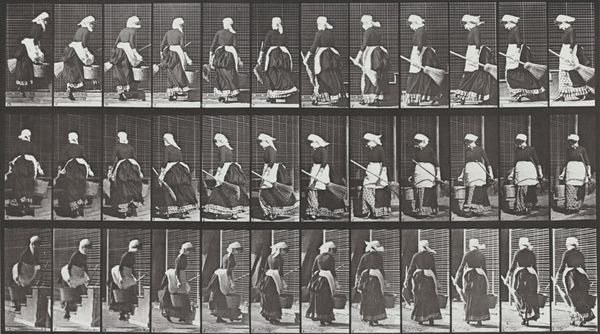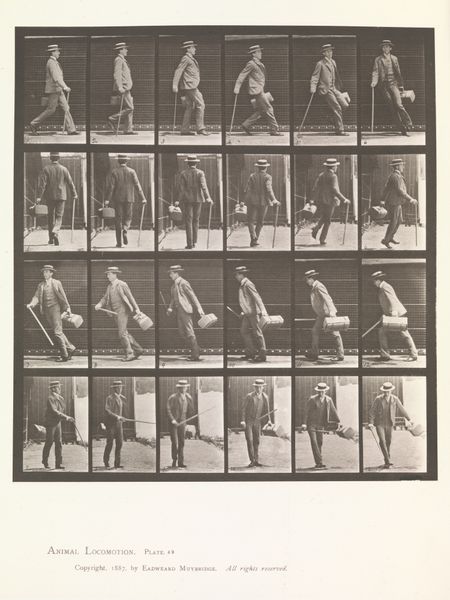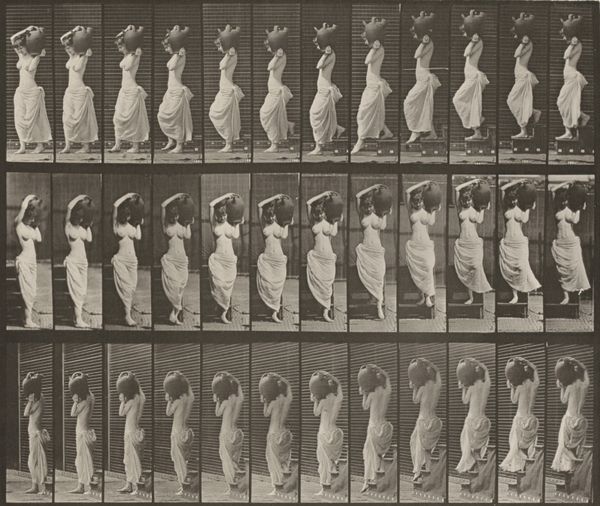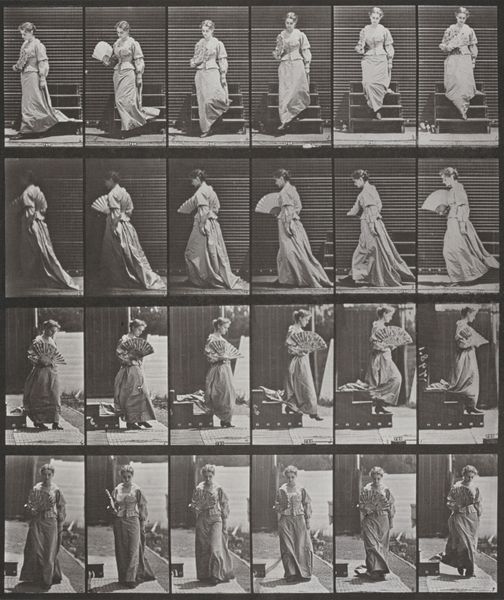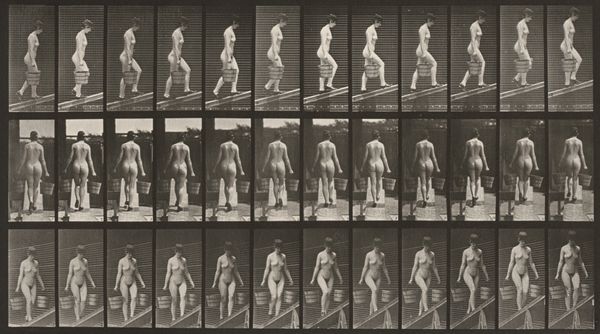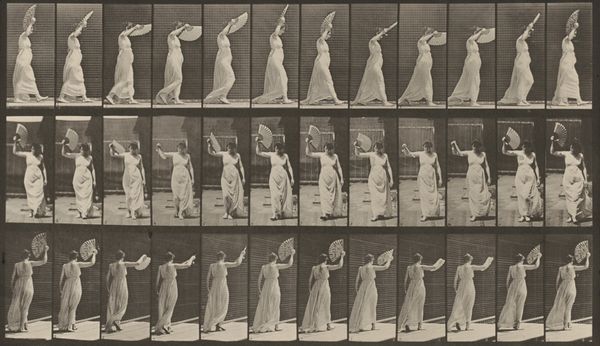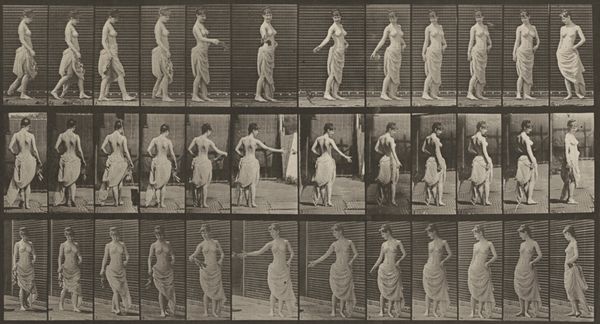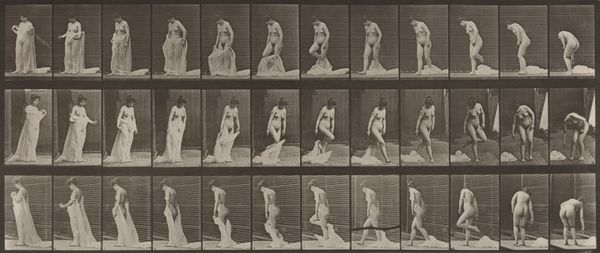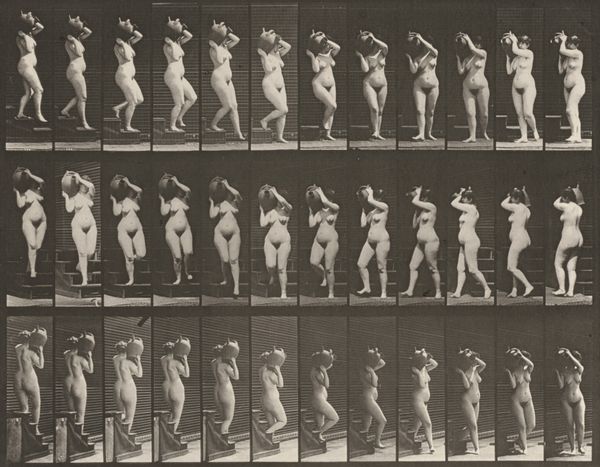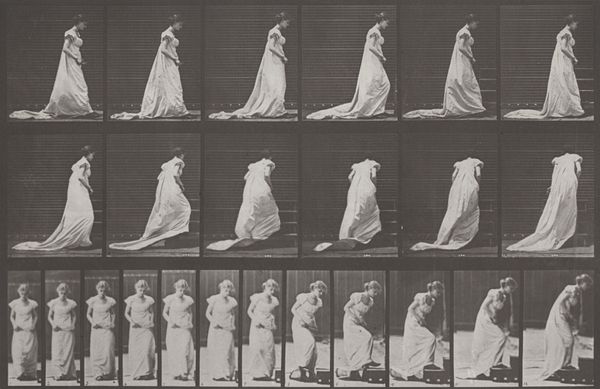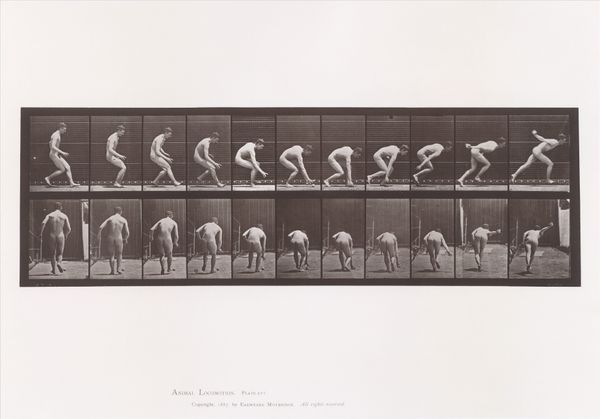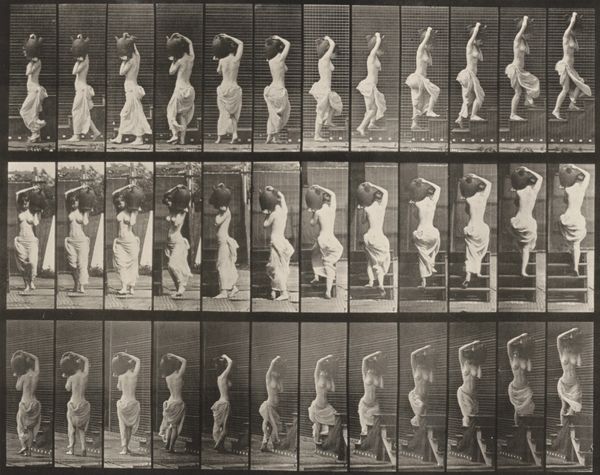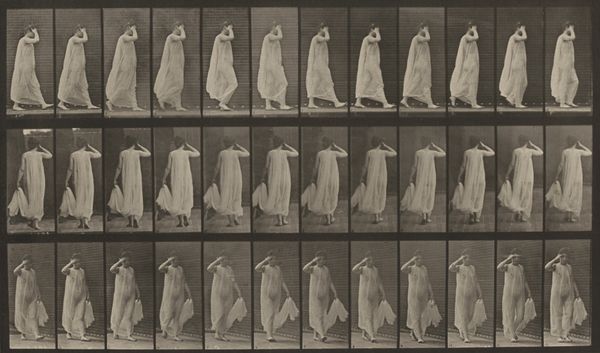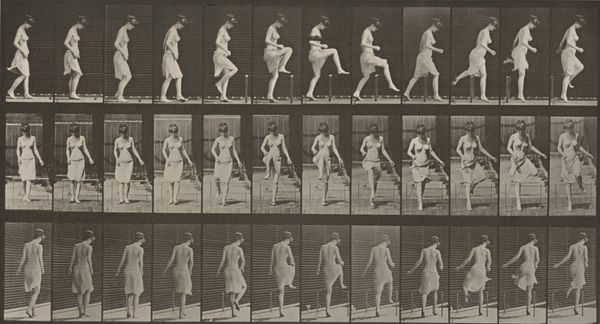
Plate Number 148. Descending stairs, turning carrying a bucket of water and a broom 1887
0:00
0:00
print, photography, gelatin-silver-print
#
action-painting
#
kinetic-art
#
black and white photography
# print
#
sculpture
#
landscape
#
figuration
#
photography
#
gelatin-silver-print
#
monochrome photography
#
monochrome
#
monochrome
Dimensions: image: 19.7 × 31.2 cm (7 3/4 × 12 5/16 in.) sheet: 47.4 × 60.15 cm (18 11/16 × 23 11/16 in.)
Copyright: National Gallery of Art: CC0 1.0
Editor: This is Plate Number 148, "Descending stairs, turning carrying a bucket of water and a broom," a gelatin-silver print by Eadweard Muybridge from 1887. It’s quite striking how the figure's movement is broken down into these discrete stages. What underlying ideas do you see in this seemingly simple study? Curator: Muybridge is interested in how we understand movement itself. Beyond the purely scientific aspect, however, lies a deeper cultural understanding of women and labor at this time. Do you notice how the image echoes historical depictions of women and water throughout art history, specifically of servitude? Editor: I hadn’t considered that. I was more focused on the groundbreaking technical aspects of capturing motion. The cultural echoes add another layer. It feels almost...archaic. Curator: It's archaic in its subject, yet innovative in its medium, presenting a new visual language. Consider the repeated, almost rhythmic, image. Think about how such an image contributes to cultural memory - what does it tell us about gendered labor in the late 19th century and its place in visual culture? Editor: It emphasizes the cyclical nature of labor. And maybe highlights the relative invisibility of it too, given the lack of individual identity assigned to the woman in these images. Curator: Exactly. These works raise questions around gender, class, and even visibility. Consider that Muybridge sought to catalogue movement, stripping context and presenting an "objective" view; can images of people performing routine tasks truly be divorced from their societal significance? Editor: It seems impossible, actually. Seeing it this way, what seemed like a straightforward scientific endeavor is actually a pretty potent statement on work and identity. Curator: Precisely! And that tension makes it enduring. This piece remains captivating precisely because it is more than it appears to be.
Comments
No comments
Be the first to comment and join the conversation on the ultimate creative platform.
